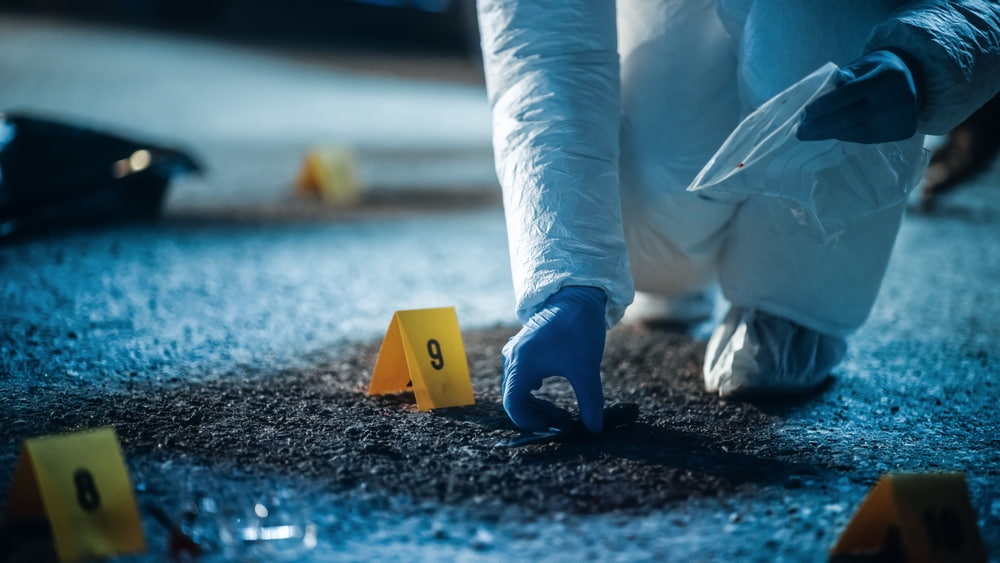What’s the Burden of Proof in Criminal Cases?

The burden of proof in criminal cases is the required level of evidence to win a case: beyond a reasonable doubt in criminal cases, more likely true than not in civil cases, and a high likelihood of truth in family and administrative cases.
If you are facing a criminal charge, you probably have a lot of questions. You will probably wonder if the state can even prove the charge.
There are different “burdens of proof” for various cases in court. Certain facts and circumstances might be enough to prove a civil case but may not be enough to prove a criminal case.
If you have questions about the burden of proof in your criminal case, then it is important that you speak to an experienced criminal defense attorney.
Quick Navigation Menu
What is a Burden of Proof?
The burden of proof is the minimum level of proof needed to win a case. You can look at the burden of proof as a scale from 0-100. On this “burden of proof scale,” a score of 0 means nothing has been proven, and a score of 100 means that everything has been completely proven.
No case requires 100% proof, no matter what type of case it is.
The Different Burdens of Proof
There are three burdens of proof that exist for most cases: proof beyond a reasonable doubt, clear and convincing evidence, and preponderance of the evidence.
- Proof beyond a reasonable doubt: This is the main burden of proof in criminal cases. To convict you of a crime, a prosecutor must prove your guilt beyond a reasonable doubt. This burden means the prosecution must show there is no other reasonable explanation for the evidence it presents at trial.
- Clear and convincing evidence: This burden of proof is most common in family law cases (when dealing with custody) and administrative law cases. This level of proof is not as high as proof beyond a reasonable doubt but is the highest standard in non-criminal cases. It requires proof that a fact is highly and substantially more likely to be true than false.
- Preponderance of the evidence: This burden of proof is most common in civil lawsuits. Under a preponderance standard, a plaintiff must prove their case against a defendant is more likely than not true. This only requires 51% on the “burden of proof scale.”
The main burden of proof that you will need to worry about in a criminal case is proof beyond a reasonable doubt.
The Burden of Proof as a Prosecutor
For a prosecutor to win their case, they have to prove you guilty beyond a reasonable doubt. This is the highest standard of proof in the law.
 The prosecutor’s job is to present evidence that proves your guilt. This evidence can be a combination of witness statements, police testimony, video evidence, and any other legal means necessary to secure a conviction.
The prosecutor’s job is to present evidence that proves your guilt. This evidence can be a combination of witness statements, police testimony, video evidence, and any other legal means necessary to secure a conviction.
If the prosecutor cannot meet their burden, your case should be dismissed or you should be found not guilty. During a trial, a jury or judge will hear and examine all of the evidence to determine whether you should be found guilty of the charges alleged.
The Burden of Proof as a Defendant
As a defendant, you have no burden of proof; you don’t have to prove your innocence, the prosecutor has to prove your guilt. During your trial, you will have the ability to question and examine any evidence the prosecutors bring against you. However, you don’t have to.
As a defendant, you do have the opportunity to present your case to refute the prosecutor’s claims. If you choose to do this, you can present your own witnesses and evidence to show that the prosecutor’s claims do not meet the necessary burden of proof for conviction.
Some jurisdictions require a defendant to prove any affirmative defense they allege to their charge, such as “self defense,” “necessity,” or entrapment. Other jurisdictions require the prosecution to disprove your affirmative defense.
Contact a Los Angeles Criminal Defense Lawyer For Help
If you are charged with a crime and need legal advice, you should contact an experienced Los Angeles criminal defense attorney right away. Your attorney will ensure the prosecution meets its high burden for proving your case. They will protect your rights and help you avoid the harshest penalties for your charge.

CONTACT A CRIMINAL DEFENSE ATTORNEY
Facing criminal charges in Los Angeles? Trust The Rodriguez Law Group Los Angeles Criminal Defense Attorneys to secure the best possible outcome. Our experienced criminal defense lawyers have 20+ years of expertise in handling criminal cases.


